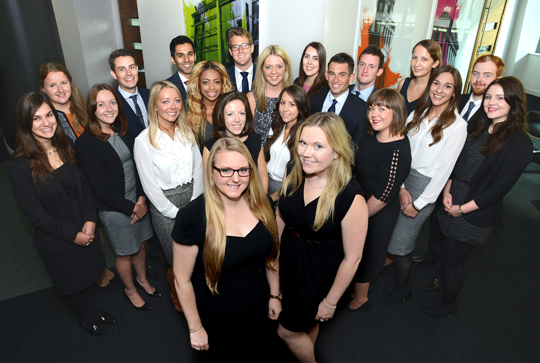
Embarking on a Promising Path: A Journey through Law, Mooting, and Bar Aspirations
July 31, 2023
The Future Lawyer Weekly Briefing – W/C 31st July 2023
July 31, 2023In this article, Diya Gupta interviews Milan Pandit, a promising trainee solicitor with a budding online presence.
Please could you introduce yourself and where you’re currently at in your legal career.
I’m Milan, and I’m currently a first-year trainee solicitor at Leathes Prior Solicitors in Norwich. I’m currently in my second seat at the firm, working in the Litigation and Dispute Resolution team.
When and why did you decide to pursue a career in law?
Unlike most, I decided on a career in law quite late on – towards the end of my third year of my undergraduate degree. In many ways, my decision to pursue a career in law was a shot in the dark. I knew what sorts of things I was good at and what kind of career I would enjoy – one that was people-orientated, focussed on client service skills, and intellectually rigorous. Law seemed like a good fit, and to my good fortune I’ve loved it ever since the first day.
How did you find the transition from studying a degree to beginning the GDL?
It was an intensely dramatic change of pace – not least owing to how tough the GDL is (as I’m sure anyone else who has studied it will also attest). That being said, although the workload was much higher and the subject matter much more complex, I found it somewhat easier to engage with as, unlike my undergraduate degree, I was genuinely interested and fascinated with the modules we were being taught.
What did you do/how did you prepare for securing a training contract?
Perhaps most significantly, I got myself as organised as I possibly could. I have always been a fan of organising facets of my life through AI and tech applications – whether it be more simplistically through Microsoft Excel or through lesser-used tools such as Trello.
In this instance, I created a tailored workspace on an app called Notion containing all the deadlines for my applications (with reminders), details of my research, and sub-workspaces to develop each application and ensure they were tailored to their respective firm. This allowed me to break what can often seem like an impossibly large charge into its constituent elements, tackling them one at a time.
Out of the seats you have taken, which have you enjoyed most?
So far, I have sat in two departments at Leathes Prior – Residential Property and Dispute Resolution. While it is perhaps too early to pin my colours to the mast, there are certainly elements from both seats that have piqued my interest.
From Residential Property, I loved the fast-paced nature of the work and the process of a transaction.
From Dispute Resolution, I love the clients (who are often businesspeople and generally commercially orientated), and the intellectual challenge.
Is there a particular area you envisioned yourself specialising in before working, and if so, has this changed at all?
To a degree.
During the GDL and the LPC, I developed a particular fondness for commercial-related work – whether it be corporate transactions or commercial disputes. I am incredibly fortunate that I currently have the chance to try the latter, and in September 2023 I will have the chance to try my arm at the former, with my third seat being in Leathes Prior’s Corporate & Commercial team.
That being said, I made sure to keep an open mind when I was placed in my first seat – Residential Property – and was really surprised by how much I loved it. It just goes to show how little you know about what you might enjoy until you put it into practice.
Why did you choose a regional firm?
Two reasons – one of them general and one of them personal.
The general reason – I have never really liked the idea of being a small fish in a big pond. While my eyes were initially drawn to Magic Circle firms when I started the GDL, it didn’t take long for me to realise that being a small part of such an enormous establishment wasn’t really for me. I would be, and am, much more fulfilled with the prospect of being a big part of a smaller, regional firm as my career develops.
The personal reason – I just love where I come from. It took studying my undergraduate degree at the other end of the country for me to realise just how much I loved home – Norfolk. It’s where I want to live for the rest of my life, and so naturally it made sense to build my career here.
What has been your most challenging experience as a trainee so far?
Perhaps this is unique of my firm, but one of the greatest challenges is also one of my greatest privileges – the level of responsibility. While, of course, some seats garner more responsibility than others (you won’t be running an insolvency case as a trainee, or NQ for that matter!), my bosses view their trainees as what they are – junior fee earners.
In practice, this means getting us involved at the highest level we can manage, which, while I wouldn’t want it any other way, is definitely not for the faint of heart! As a result, there are numerous occasions where I have fallen short (as I believe is a part of any trainee solicitor’s journey), but the rate of improvement such an approach fosters is unrivalled.
What does a typical day look like for you and what are some of the average tasks you’re assigned?
As any trainee or ex-trainee who has ever completed a seat in Dispute Resolution can attest, there isn’t really such a thing as a ‘typical day’ – no two days are ever the same. That being said, there are certainly common tasks you will be assigned based on your experience.
At the start of such a seat, you will be eased in with drafting short letters, conducting research, and dealing with court filings. However, as you gain some experience, you will be entrusted with tougher tasks such as drafting witness statements, statements of case, and dealing with clients on complex legal issues.
How would you describe the standard trainee at your firm (are there any particular traits, professional experiences, abilities that everyone generally shares)?
Surprisingly not! As a group, my cohort of trainees are all very different with distinct personalities – perhaps it’s one of the reasons we all get on so well.
I am sure this is no accident – Law Firms thrive on developing a set of lawyers with diverse personalities and unique approaches to their work, meaning each are suited to different areas. For example, while I’m more commercially minded with my interests, one of my fellow trainees dwarfs me in her ability to deal with individuals and assist with personal matters.
That being said, there are definitely some underlying similarities – everyone is hard-working, ambitious, intelligent, and charismatic. As a result, they are what our firm, and indeed most firms, would look for in their trainees.
What advice would you give to individuals hoping to obtain a training contract, but consistently facing rejections?
If consistent failure is something that you don’t want to experience often, then a career in law may not be for you. While I’ve now been fortunate enough to cross the gap between law student and trainee solicitor, I cannot count the number of times I have failed or fallen short during my training contract (already!).
A career in law is tough and will be riddled with failure all the way through. However, if you’re able to withstand it, I can promise you will emerge not only a brilliant lawyer, but an extremely accomplished person (as is the case for all my brilliant colleagues above me).
At the end of the day, you can’t lose if you never give up.
Where do you see yourself in a few years and at what type of firm?
When I was applying to law firms during my GDL, I made it clear in my cover letters and applications that I was looking for a law firm that I could put down my roots with, stick with for the long-run, and, in good time, rise through the ranks at.
Fortunately, my firm have that exact same vision for their trainees, and more than half of the partners started off as trainees at Leathes Prior.
As a result, my current plan is to do everything I can during my training contract to persuade my firm that they should roll the dice on me as an NQ and, in the years to come, beyond.
What aspirations do you have for the legal profession and it’s accessibility?
While I think it’s too early in my journey to have grandiose aspirations for the direction of the profession, I certainly think more can be done on the accessibility front. Law is a notoriously opaque profession for students, and throughout both my GDL and LPC I was only drip-fed information on what it’s like to become a lawyer.
To change this, I believe it’s the job of people in my position – trainees and paralegals who are finding their feet in the profession, being as honest as they can about their experiences. Whilst certain lawyers are masters of honestly building their brand and expanding their outreach, it is certainly something I am consciously trying to contribute to through my social media presence.





